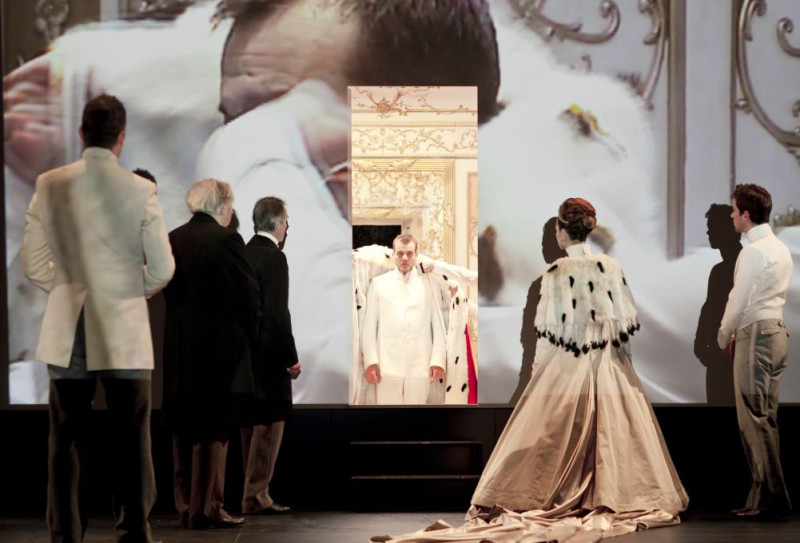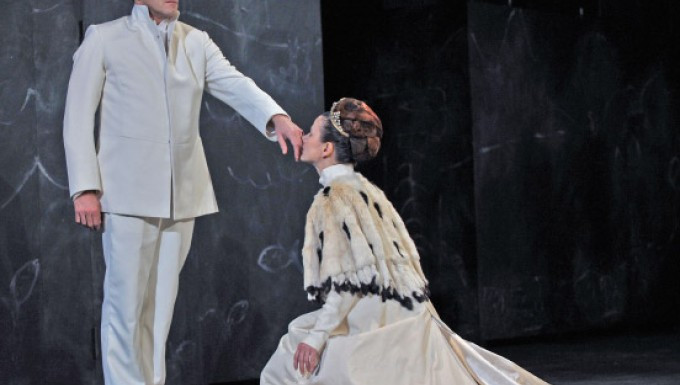Ludwig II
He has got used to the idea that he will be king, Ludwig says. But blind panic can be read in his eyes. For Ludwig wants to be free, free to pursue something higher, as artists do. After all, isn’t that what distinguishes man from animal? But Ludwig is destined to become Ludwig II of Bavaria (1845-1886).
Munich is the capital of that fairy-tale part of the country, and it is not illogical for the Munich Kammerspiele to put its colourful fellow townsman on stage. A dramatic figure he certainly is. Books have been written about Ludwig: about his madness, his enigmatic suicide, his fairy-tale castles, his relationship with Wagner.
Guest director Ivo van Hove based his performance on Luchino Visconti’s 1972 film. In Van Hove’s stage adaptation of it, the main focus is on the difficult relationship between illusion and reality and between reality and lies.
Ivo van Hove: director
after Luchino Visconti
Eric Sleichim: music composition and sound design
Koen Tachelet: dramaturgy
Jan Versweyveld: scenography and light design
Greta Goiris: costumes
Tal Yarden: video
Jeroen Willems: leading role


Agenda
Excerpt from review by Robbert van Heuven, 17 March 2012, Theaterkrant
Ludwig (Jeroen Willems) initially prefers to immerse himself in the music and legends of his great hero Wagner rather than in affairs of state, which he actually finds mediocre and tedious, but at the same time terrifying. He would rather be part of something bigger, something that can stand up to history, like Wagner’s music. But the dream world he creates is increasingly replacing reality. War simply does not exist in that world. He suppresses his homosexuality with the illusion of an engagement to his niece Sophie, in which he sees Elsa, the heroine of Wagner’s Lohengrin. The naivety of the ‘mad’ king is easily abused, as by his hero Wagner, who abuses Ludwig’s admiration to pay off his debts and have a theatre built for himself. The more Ludwig collides with the harsh outside world, the more he retreats into his own lonely fairy-tale world.
Jeroen Willems plays Ludwig ravishingly handsome. Outwardly, he appears to be a fairly impassive, albeit sombre type, but inside he is churning and bubbling with the occasional unexpected outburst. Willems is also given plenty of room to excel by Van Hove, who has kept his direction pleasantly simple for his part, with all the emphasis on the ensemble’s wonderful acting. The design plays a simple but effective game with inside and outside and with illusion and reality. In an ultra-realistic and enclosed room with gold wallpaper and mirrors, state business is transacted, but Ludwig prefers to be in the space around that oppressive box. Because there he can create his own reality with white chalk on the black floor and walls. A fairytale reality made of dust that finally gives the lonely, tormented Ludwig the eternity he longs for. Because everyone in Munich still knows his name: mad Ludwig II.

